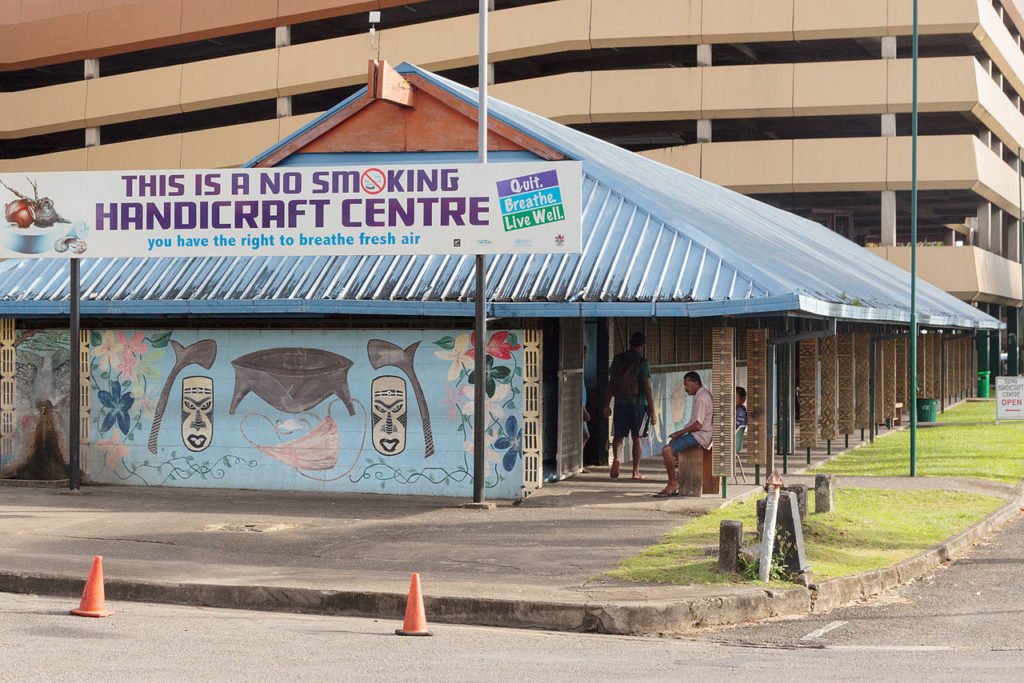Sackona highlighted the importance of preserving traditional know-how, a strong focus of the government’s next mandate. Prime Minister Hun Sen recently announced that the government will fund a national vocational training programme which will train 30,000 to 60,000 people.
“I thank the founders of Satcha for helping to preserve traditional know-how and national identity, and for working hand in hand with the ministry of culture in the past. I look forward to their future cooperation on the new training programme,” she said.
The centre provides training to those who love learning and improving their living standards through producing handmade crafts, according to Romano Pierre-Andre, CEO and co-founder of Satcha.
“So far, we have selected more than 40 learners from among the 300 who applied for our incubation program,” he told The Post.
He said he expected 20 to 40 more to join, either onsite in Siem Reap, or in a workshop that the centre plans to build in a more remote area.
After living in Cambodia for more than three decades, Pierre-Andre is concerned that circumstances are not favourable for traditional crafts-men and women, and that many are abandoning their trades.
 “They are either working as employees of large artisans’ companies – which failed their social mission by paying low salaries, and thus allowing little chance for craftspeople to move up the social ladder – or they are supported by NGO’s with non-sustainable business models that are based on donations,” he said.
“They are either working as employees of large artisans’ companies – which failed their social mission by paying low salaries, and thus allowing little chance for craftspeople to move up the social ladder – or they are supported by NGO’s with non-sustainable business models that are based on donations,” he said.
“That’s why we decided to launch Satcha. We provide them with workshops, tools, raw materials and a 2 to 3 year training programme that will help them become more independent and create their own handicraft company,” he added.
The centre hosts stone and wood carvers, painters, lacquer artists, ceramists, silk and cotton weavers, water hyacinth and rattan weavers, leather engravers, seamstresses and jewellery makers, all of whom learn to hone their technical skills.
Pierre-Andre said the centre also provides soft skills, starting with Khmer literacy and English.
“Business communications, social media and marketing, art history and design, finance and the legal environment are also covered, so every graduate will have the skills he or she need to become an independent entrepreneur. Our goal is to make sure the learners can maintain their traditional craft skills and support their families too,” he added.
The central workshop has a unique shape which was inspired by the traditional long houses of Mondulkiri, according to Pierre-Andre who said he loves Cambodian arts and handicrafts.
 “For the workshops design, we worked with Green Bamboo Cambodia, a social enterprise which was founded by Caroline Chau a Khmer lady born in France. She returned to Cambodia to promote bamboo as a sustainable construction material and to revive the bamboo value chain in Cambodia,” he added.
“For the workshops design, we worked with Green Bamboo Cambodia, a social enterprise which was founded by Caroline Chau a Khmer lady born in France. She returned to Cambodia to promote bamboo as a sustainable construction material and to revive the bamboo value chain in Cambodia,” he added.
He said that the builders were Khmer, and the bamboo came from Kampong Cham. The design had been modernised to showcase the potential of bamboo.
Pierre-Andre hopes the centre’s incubation model will preserve traditional know-how, as well as creating more contemporary designs that will attract members of younger generations.
“Many of these skills have been in existence for thousands of years. We all know about the temple carvings, but jewellery that is just as old has also been discovered. Zhou Daguan, a Chinese diplomat who visited the Kingdom in 1296, described the beautiful fabrics woven by Khmer people, and some ceramics found in Cambodia have been dated to the first or second century BC,” he explained.
The centre employs masters with more than 20 years experience in their craft, with internal and external trainers handling the soft skills training.
Pierre-Andre explained that the centre is not an NGO but a private social enterprise of a kind that did not previously exist in Cambodia. This is to guarantee its sustainability, but with a specific shareholders agreement. The centre has committed to investing two thirds of its profit into social benefits, more training, and incubation workshops in other provinces.
“I also would like to add that Satcha is a Khmer venture, with 100 percent of the staff and the incubated artisans being Khmer. Two third of the investment was provided by Cambodian business angels willing to support this initiative,” he said.
“I am planning to take a step back in the future and work only on the strategic development of Satcha. We have already identified a young Cambodian woman as a future managing director, and we expect her to take the led by the end of the year,” he added.
Satcha Handicrafts Incubation Centre is open 7 days per week, with free admission for visitors who would like to see the artisans at work.
According to phnompenhpost.com











